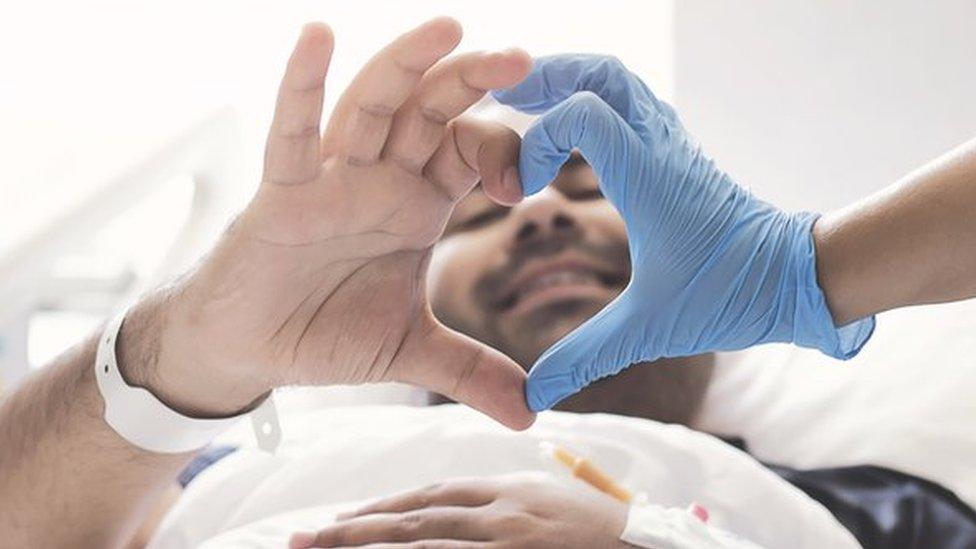Face and genitals 'not for presumed donation'
- Published

Some body parts - such as the face, ovaries and testicles - should be excluded from the new presumed consent organ donation system coming into force in England next year, proposals say.
From 2020, adults will be considered to be in favour of donating after death unless they have opted out.
A new consultation document lists which organs and tissues are allowed to be taken under this system.
People have until 22 July to .
Organs and tissues that can be taken without extra consent under the new system include: âĒ heart (whole organ or for heart valves) âĒ lungs âĒ liver âĒ kidneys âĒ pancreas âĒ intestinal organs (small bowel, stomach, abdominal wall, colon, spleen) âĒ eye âĒ nervous tissue âĒ arteries/veins/blood vessels âĒ bone âĒ muscle âĒ tendon âĒ skin âĒ rectus fascia (tissue that encases abdominal muscles)
Ones that would need explicit permission include: âĒ brain âĒ spinal cord âĒ face âĒ nose âĒ mouth âĒ trachea (windpipe) âĒ arm âĒ upper arm âĒ forearm âĒ hand âĒ finger âĒ leg âĒ thigh âĒ lower leg âĒ foot âĒ toe âĒ ovary âĒ uterus âĒ penis âĒ testicle âĒ foetus âĒ placenta âĒ umbilical cord âĒ embryo (inside the body) âĒ eye cells that will be used to make medicinal products âĒ liver cells that will be used to make medicinal products âĒ pancreatic cells that will be used to make medicinal products
How does optout work?
Currently, in England, there is a voluntary opt-in scheme. Presumed consent has been operating in Wales since December 2015.
When the new system starts in England, the family of the deceased will always be consulted first and they will still be able to provide information on their loved one's wishes. If they have information that their loved one would not have wanted to donate their organs or tissues, organ donation will not go ahead.
You can register your choices on the
From spring 2020, presumed consent will happen unless:
an individual has said they don't want to donate their organs by "opting out" of the system
they have appointed a representative to decide for them after their death
they are in one of the excluded groups - under the age of 18, ordinarily resident in England for less than 12 months before their death, or lacking mental capacity for a significant period before their death
If you don't opt out, it doesn't mean your tissues and organs will automatically be used. Organ donation can happen in only a small number of cases - when there is a good match between the donor and the recipient.
You shouldn't opt out if you consent to donate some of your organs or tissue. If you opt out, you will be recording that you do not want to donate any of your organs or tissue, and opting out of donation completely.
Every day, across the UK, three people who could have benefited from a transplant die because there aren't enough donors, while 6,000 are still waiting, NHS Blood and Transplant says.
A spokeswoman for the Department of Health and Social Care said: "Our priority is to improve the number of life-saving organ transplants that can take place - and we expect Max and Keira's law, which comes into effect next year, to save hundreds of lives each year.
"As set out in our consultation, we are proposing that the system for rare or experimental transplants - which requires express consent from relatives - remains the same under the new legislation."
- Published26 February 2019